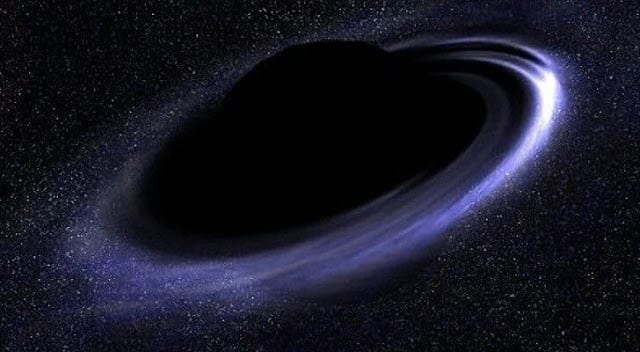
Editor: Philip Ragner | Tactical Investor
Facts about Black Holes
Black holes are among the most mysterious objects in the universe. Thanks to the painstaking efforts of scientists who have dedicated their lives to studying black holes, we now know a lot about these infinitely dense abysses. Chances are you won’t come across anything weirder than a black hole, and I’ve collected ten facts to prove it.
Stellar black holes. When a (large) star runs out of fuel it may collapse into a black hole. All black holes start out small then grow in size as they consume matter from around the galaxy.
Supermassive black holes. Ranging from hundreds of thousands to billions of solar masses, supermassive black holes can form in a number of ways. For one, a small black hole can be fortunate enough to come across a large gas cloud. Hundreds of thousands of tiny black holes may also merge to form one mammoth hole.
Finally, a stellar cluster, which is a group of many stars, can all collapse together to form a supermassive black hole.
Intermediate black holes. It’s only recently that astrophysicists from NASA found that there are black holes with masses in between stellar and supermassive varieties. These mid-mass black holes were first discovered in 2014 and contain the mass of a few hundred to a few hundred thousand suns. Full Story
Black holes are the only objects in the universe that can trap light by sheer gravitational force.
Scientists believe they are formed when the corpse of a massive star collapses in on itself, becoming so dense that it warps the fabric of space and time.
And any matter that crosses their event horizons, also known as the point of no return, spirals helplessly toward an unknown fate.
Despite decades of research, these monstrous cosmological phenomena remain shrouded in mystery.
They’re still blowing the minds of scientists who study them. Here are ten reasons why:
– Black holes do not suck.
Some think that black holes are like cosmic vacuums that suck in the space around them when, in fact, black holes are like any other object in space, albeit with a very strong gravitational field.
If you replaced the sun with a black hole of equal mass, the Earth would not get sucked in — it would continue orbiting the black hole as it orbits the sun, today. Full Story
Other Stories of Interest
Is this the end for Bitcoin or is this a buying opportunity? (Jan 24)
Stock Market Insanity Trend is Gathering Momentum (Jan 10)
Is value investing Dead (Jan 9)
Irrational markets and Foolish Investor: perfect recipe for disaster (Jan 5)
Stock market Crash Myths and Realities (Jan 3)
Bull-Bear Markets & Arrogance (Jan 1)


